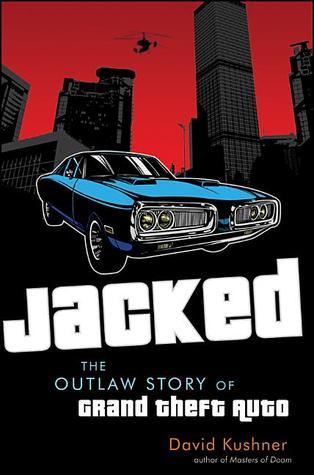I'm really not sure how much I liked this book and how to rate it. Three or four stars? Depends.
On the one hand, I had a few issues with it. I find that more and more I prefer books that don't contain reconstructed dialogue at all, and mention sources of specific claims. Right at the beginning of the book, the foreword explained the necessary context and set expectations, so I'm not saying it's misleading.
But especially if the book contains vulgar or outrageous statements or suspicious claims, I'd like to know if they're there because a person said/believed them, or the author is extrapolating based on interactions with the person, or the author is just making jokes/being crass.
Furthermore, I think on some level I liked the book because in comparison with Masters of Doom, the protagonists an their interactions were far more interesting or likable. And maybe the narrative distance was better? Not sure if that's the case. But with the two Johns it felt like I'm in the room with them, watching them work and bicker. With the two Hausers it felt like I'm being told how a conceited man thinks he's better than everyone, from afar.
I acknowledge that this might be outside the author's control to an extent, but it does influence how much the book is enjoyed.
On the other hand, the book did provide tons of cultural context and influences on the society at the time in general, and on the creators (or at least bosses) behind the games. Since I don't know much about the history of music, and I know even less about movies and actors, this was appreciated. I have jotted some of them down to listen to later, or in the case of movies - added them to my ever-growing to-watch list, probably to never watch them again.
I wish the book talked more prominently about the issues related to crunch - most of the time it was just mentioned in passing, as something that is just a part of the game dev process. On the other hand, the author did point them out in the epilogue. And in 2012 when the book came out, these issues weren't that visible and publicly discussed as they are now, so I think it can be forgiven.
 ⭐⭐⭐⭐
⭐⭐⭐⭐